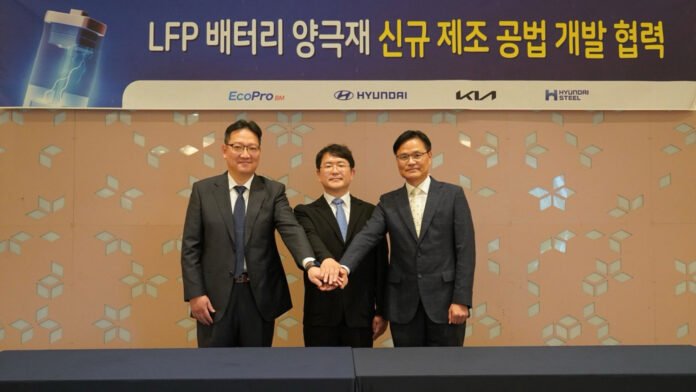Hyundai Motor Company and Kia Corporation are making strategic moves to improve their competitiveness in the electric vehicle (EV) market, particularly in the development of advanced battery technology. In a new initiative launched on September 25, they are focusing on lithium iron phosphate (LFP) battery cathode materials. Collaborating with Hyundai Steel and EcoPro BM, a major player in the cathode material industry, they aim to innovate by synthesizing materials directly, bypassing the need for traditional precursors. This four-year project, backed by the Korean Ministry of Trade, Industry and Energy, is part of a broader effort to secure a sustainable battery supply chain and reduce reliance on imports. Hyundai’s Vice President, Soonjoon Jung, emphasized the importance of advancing technology to meet growing demand in the EV sector, while also positioning Hyundai Motor Group as a leader in technological competitiveness.
The key innovation in this project is the direct synthesis process, which integrates phosphate, iron powder, and lithium in one step, cutting down on production costs and minimizing environmental harm. The collaboration with Hyundai Steel focuses on refining high-purity iron powder from recycled materials, which will be used by EcoPro BM to develop high-performance LFP cathode materials. These materials are expected to support fast-charging capabilities and maintain strong performance even in low temperatures. By bridging the steel, battery, and automotive sectors, Hyundai and Kia aim to take significant strides in shaping the future of EV technology, aligning with their long-term strategies to improve battery performance, safety, and cost efficiency.







